Five Libertarian Lessons in HBO's Game of Thrones
For libertarians it may seem like winter is always coming
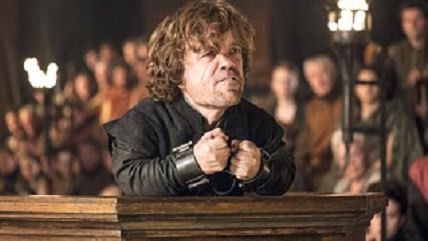
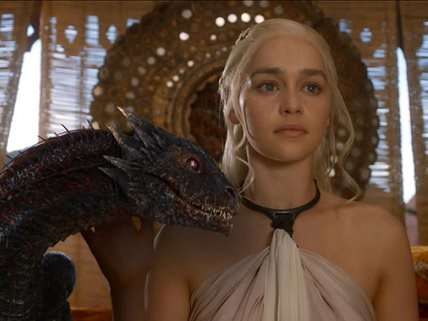
The latest season of HBO's Game of Thrones ended Sunday. The show, which has garnered record-breaking ratings for HBO and has also become one of the most pirated TV shows of all time, follows the stories of the royal families and politics of Westeros, a fictional amalgamation of mostly medieval European states. Nevertheless, because the show—based on a series of novels by George R.R. Martin—focuses more on humans and the way they interact with each other than on magic (though there is plenty of that), it provides a jumping off point for conversations on issues like rape and radicalism. Because libertarian ideas are largely based on human action, there are some libertarian themes to glean from the show, too. Spoliers, obviously, to follow.
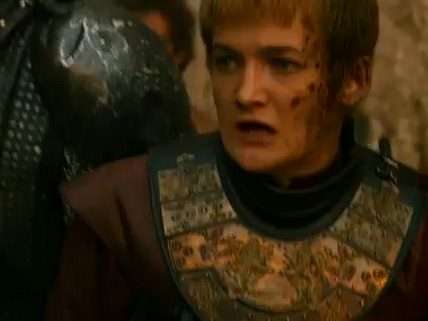
1) The rule of law is more important than brute force for social order
Much is made in Westeros about bloodlines, the right to rule, and the force needed to exercise that right. The death of King Robert Baratheon in the first season led to several seasons of jockeying by his brothers and other pretenders to the Iron Throne. The strength of a claim rested primarily on the strength of the army behind the claimant. Thus, Joffrey, the son of Robert's wife, Cersei, and her twin brother ascends the throne while Robert's younger brother Stannis has to figure out a way to bring his own family's forces under his command before attempting to take King's Landing. In the meantime, the presence of multiple claimants to the throne encourage Balon Greyjoy, a regional lord, to reassert his realm's independence from the Seven Kingdoms ruled by the Iron Throne.
Joffrey, meanwhile, is ill-prepared for power and moves immediately to abuse it, disregarding custom and any base standard of morals to literally do as he pleases as king. He beheads Ned Stark even after promising to pardon him, leading to war. He signs off on the murder of Ned's son, Robb, during a wedding. He also torments his subjects, is loathed by all, and eventually poisoned. Rather than making any effort to find the real killer, Joffrey's grandfather, the power behind the throne, instead uses his death to try to eliminate the dwarf son he detests. "The true moral of the story," Charli Carpenter wrote at Foreign Affairs, "is that when good rules are disregarded, disorder and ruin follows."
2) Debt is ruin
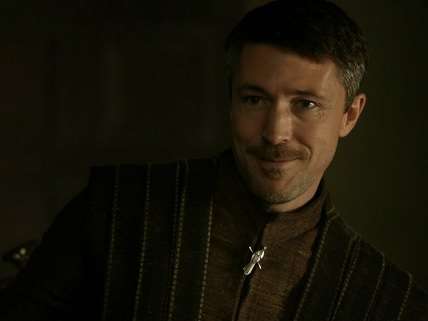
One of the key lessons throughout Game of Thrones is that when you pay the bills you call the shots. "A Lannister always pays his debt" is the unofficial motto of House Lannister, which not coincidentally appears to wield the most power of any family in Westeros. While the Iron Throne remains technically in the hands of the Baratheons—Joffrey and later Tommen are the product of Cersei Lannister's relationship with her twin brother but are legally Baratheons, considered the children of Robert—Tywin Lannister, the patriarch of House Lannister, holds the position of "hand of the King" for both of his grandsons. Yet even when Robert ruled, he acknowledged Tywin's influencebecause the kingdoms owed so much money to the Lannisters. Naturally, the government of the Seven Kingdoms doesn't operate within, and eventually turns to the Iron Bank of Braavos for funding. It appears by the end of the fourth season that that bank has decided to back Stannis Baratheon in his quest to seize the Iron Throne—a stark lesson about how real the threat posed by national debt can be.
3) Government is theft
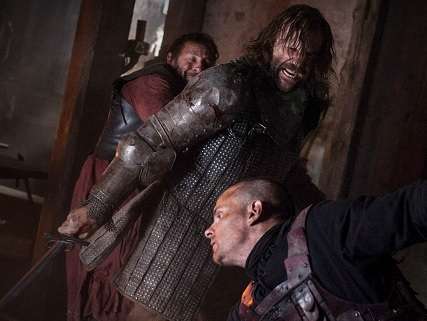
Even with—or even because of—the significant debt the government of the Seven Kingdoms owes to the Lannisters and to the Iron Bank of Braavos, the government also relies on the King's men to loot and pillage the populace it claims to govern. The government's reliance on what it can pilfer from the kingdoms is made clear when young Joffrey, not yet a king, explains to his mother that he believes the lack of a royal army makes the king weak. How would he solve it? By requiring each kingdom to submit men to his army. In the latest season, the king's men (also known as the Lannisters' men) are shown as marauders, using their royal backing to take what they want as they push through the country. Contemporary governments offer more services than the government of Westeros, but the relationship between the property of the governed and the needs of the government is quite similar. What the government needs, it takes. The king's men may not terrorize America's streets, but it's easy to see the parallel between that kind of pilfering and actions like asset forfeiture and even the use of eminent domain to enrich interests connected to government officials.
4) Tight borders are anathema to freedom
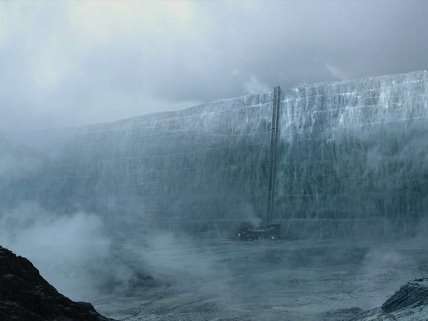
One of the most important settings in Game of Thrones is "the Wall," a megastructure built to separate the Seven Kingdoms from the more brutal lands north of the Wall. The Night's Watch, populated by criminals and young men with no place in their society, guards the Wall from Castle Black, charged with keeping the barbarians north of the wall from coming south. Deteriorating conditions, meteorologically and otherwise, are leading to a mass influx of refugees headed for the wall. The militarized border has helped turn these migrants into an invading force. As one of the "wildlings" from the North explains it, there's no difference between them and the residents of the Seven Kingdoms except that the former ended up on the "outside" of the wall and the latter on the inside. Arguably, the wall itself contributed to the disparities between the North and the Seven Kingdoms—the restriction of the freedom of movement of people and goods will have that effect. Without a wall, the wildlings of the North would have developed mutually beneficial economic relations with the residents of the Seven Kingdoms, perhaps even becoming a part of the polity. Instead, they are refugees or invaders.
5) Team loyalty in politics is dangerous
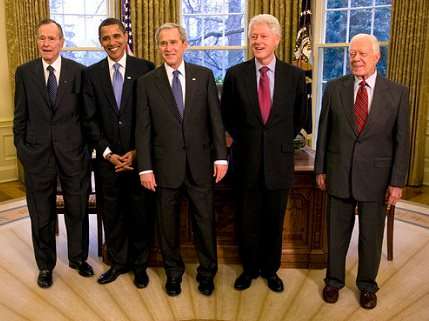
A lot of the commentary about Game of Thrones seeks to connect the operation of the royal houses of Westeros to the Kennedy, Bush, and even Clinton families of the United States. "Could Americans one day say, without irony, 'The House of Bush' or 'The House of Clinton'?" John Blake asks at CNN. The distinct possibility that the 2016 election will come down to a race between Jeb Bush and Hillary Clinton helps this flawed analogy along. Yet, while George W. Bush may have been "second of his name," he was only the second president in America's history to be so. His father, meanwhile, was the first sitting vice president to be elected president since John Adams, America's second president and the last president to have a son ascend to the presidency as well. And when was the last time a Kennedy was relevant?
Instead, the royal houses of Westeros and their political influence in the Seven Kingdoms have more in common with the major parties of the United States. Just as many people in Westeros will base their political opinions on the house to which they have pledged loyalty, so too do many people in the U.S base their political opinions on the party, Democrat or Republican, to which they have pledged loyalty.(Mercifully, this trend is declining.)


Show Comments (164)